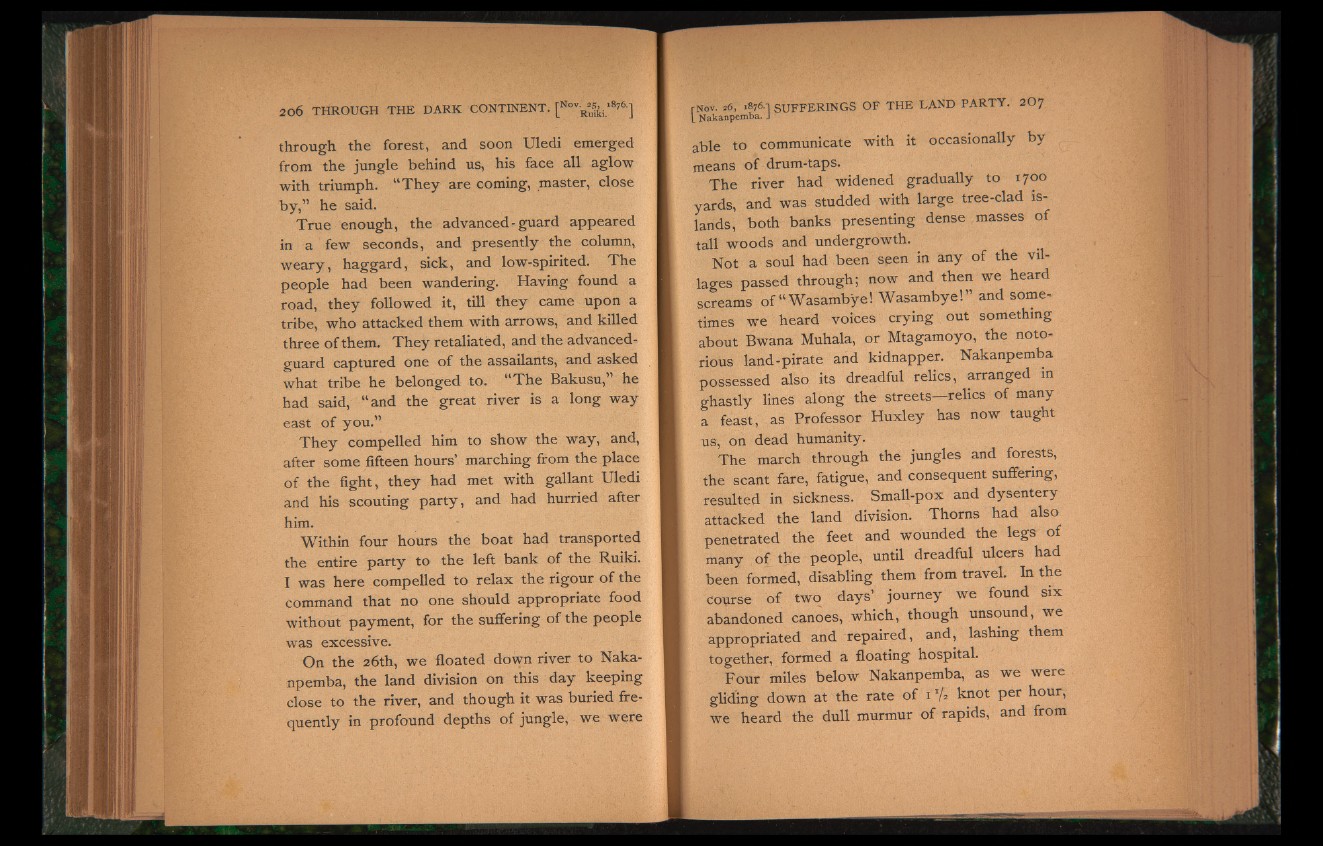
206 t h r o u g h t h e d a r k c o n t in e n t . [NoVuiii.1876]
through the forest, and soon Uledi emerged
from the jungle behind us, his face all aglow
with triumph. “They are coming, master, close
by,” he said.
True enough, the advanced-guard appeared
in a few seconds, and presently the column,
weary, haggard, sick, and low-spirited. The
people had been wandering. Having found a
road, they followed it, till they came upon a
tribe, who attacked them with arrows, and killed
three of them. They retaliated, and the advanced-
guard captured one of the assailants, and asked
what tribe he belonged to. 1 The Bakusu, he
had said, “ and the great river is a long way
east of you.”
They compelled him to show the way, and,
after some fifteen hours’ marching from the place
of the fight, they had met with gallant Uledi
and his scouting party, and had hurried after
him.Within four hours the boat had transported
the entire party to the left bank of the Ruiki.
I was here compelled to relax the rigour of the
command that no one should appropriate food
without payment, for the suffering of the people
was excessive.
On the 26th, we floated down river to Nakanpemba,
the land division on this day keeping
close to the river, and though it was buried frequently
in profound depths of jungle, we were
rNov. 26, 1876-1 SUFFERINGS OF THE LAND PARTY. 2O7
L Nakanpemba. J
able to communicate with it occasionally by
means of drum-taps.
The river had widened gradually to 1700
yards, and was studded with large tree-clad islands,
both banks presenting dense masses of
tall woods and undergrowth.
Not a soul had been seen in any of the villages
passed through; now and then we heard
screams of “Wasambye! Wasambye!” and sometimes
we heard voices crying out something
about Bwana Muhala, or Mtagamoyo, the notorious
land-pirate and kidnapper. Nakanpemba
possessed also its dreadful relics, arranged in
ghastly lines along the streets—relics of many
a feast, as Professor Huxley has now taught
us, on dead humanity.
The march through the jungles and forests,
the scant fare, fatigue, and consequent suffering,
resulted in sickness. Small-pox and dysentery
attacked the land division. Thorns had also
penetrated the feet and wounded the legs of
many of the people, until dreadful ulcers had
been formed, disabling them from travel. In the
course of two days’ journey we found six
abandoned canoes, which, though unsound, we
appropriated and repaired, and, lashing them
together, formed a floating hospital.
Four miles below Nakanpemba, as we were
gliding down at the rate of i 1/*' knot per hour,
we heard the dull murmur of rapids, and from